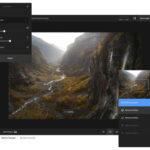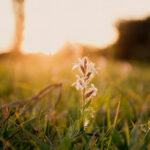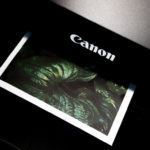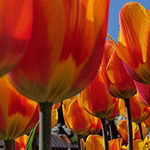 Gorgeous landscapes, early morning fog lifting off the frozen lake, the glistening icicles on the tree branches. Photography opportunities meet you at every corner.
Gorgeous landscapes, early morning fog lifting off the frozen lake, the glistening icicles on the tree branches. Photography opportunities meet you at every corner.
When your winter vacation takes you to the secluded, covered in snow, corner of Ontario; and you just discovered that perfect winter paradise scene; now you want to get it on film, or store it for latter so you can plaster it all over your desk top… Or maybe your children build that perfect snowman and you need to make a digital record of it, so you can show it to their children someday…
There are countless reasons to take pictures in winter time. But heard the horror stories about the underexposed snow scenes, or foggy lenses…
If you are convinced that trying winter photography will only leave you with less then perfect prints, you don’t need to worry.
The art of winter photography is no longer reserved for the professional, you too can have exceptional results with your digital or 35mm camera.
First things first, if you plan to take spectacular winter landscape photographs, you will need to get yourself ready for the cold. As with dressing for any other winter outing, it is best to put on layers, as opposed to one bulky piece of clothing. You can always take off layers if the weather changes.
Wear appropriate winter walking shoes, ones that will grip the snow and ice and not slide on it. We don’t want you dancing on ice, sliding and slipping. You may not only fall, damage your camera but also become a suitable object for other photo enthusiasts out there. So lets get some good winter boots.
Other things that you need are warm hat and a pair of thin, warm gloves. It is so much easier to take pictures wearing a slim glove and not the fat, bulky one. If you wear thick gloves, it may be nearly impossible to operate your camera, especially if it is a manual focus one. You may need to take the gloves off, exposing your hands to the cold, winter air. Your hands will quickly become cold and stiff and the photo session will be over…

Make sure that your camera is protected from snow and water. If the snowflake lands on your lens it will melt and smudges will form, just like described above. So keep your equipment well protected and covered, if it is snowing outside.
Winter photography requires an equipment that will stand up to freezing temperatures. The film cameras or SLR (Single Lens Reflex) cameras are better choice for outdoor, winter photography, because they have a much sturdier parts. The Digital Cameras may fail you in very cold conditions. You may avoid this by keeping the batteries warm or changing them for fresh, warm ones if needed. You can warm up the batteries by holding them in your hand, or in the car.
The winter landscape, beautiful as it may be, is quite tricky. It’s just like shooting the high-key studio portrait. Majority of the landscape is white, the background and foreground are bright and the camera’s exposure meter will tend to give you the wrong reading, resulting in underexposed shot. In order to avoid this problem it is a good idea to switch to the manual program and take the picture by overexposing it by one stop.
Sometimes the winter will serve up some gray skies and you may think that your pictures will look equally gray and sad. That may not be the case; you have several options in this case. The first would be to use the gray sky to your advantage, that moody color may add more character to your image. You will have a grater opportunity to showcase the full spectrum of the gray scale, visible in the winter sky. When you are finally tired of the gray, try to shoot from such an angle that the sky area is not as visible. Another option is to use a gradual coloring filter to visually change the sky color.
Besides shooting the grey sky, you may consider other choices for your winter photography project.
If you have a dog, take it with you on your shooting trip. It may surprise you how playful dogs can be in the powdery snow. The picture of the friendly mutt’s face covered with the white fluffy stuff will make your heart melt.
If you lucky enough to be by the water somewhere, make sure to take some shots of the frozen surfaces if it’s a lake or maybe the spectacular frozen river scene with just a trickle of water coming through onto the cascading stones.
The country scene with a crooked, old barn surrounded by sparkly branches of low growing bushes covered with ice. Make sure that your scene composition is done in your viewfinder, so it is balanced and perfect, not on your computer.

Other options for outdoor winter photography may include horses in the pasture, colorful birds at the feeder, wild animals in the forest.
Your children will provide the endless array of images that you can work with. Just remember to dress them in layers and let them have fun. Make sure to get down to their level, and get in close. If you are afraid to spoil their fun, or you know that they will be camera shy, step back, use a telephoto lens and a tripod for stability. The final results will be well worth the hassle.
If you are lost for choices in winter photography themes, you can always try the close-up shots. The beauty of the frozen patch of grass, sparkling in the sun on the background of glistening snow, may be discovered only through the viewfinder of your camera.
So be brave, dress warmly, get out there and shoot, the world of winter photography awaits you!
Polish born-Canadian, Joanna Gerber is a professional photographer, alpine skiing enthusiast and editor of www.winter-vacations-ontario.com, comprehensive guide to Winter travel, resorts and family oriented activities in Ontario, Canada.
Like This Article?
Don't Miss The Next One!
Join over 100,000 photographers of all experience levels who receive our free photography tips and articles to stay current:






when is condensation a worry for the lens’ and body? Or is it one at all?